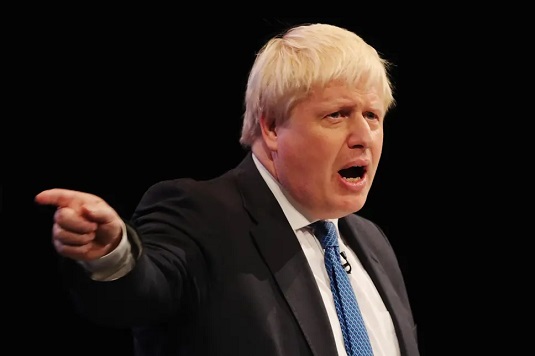Boris Johnson Vs the Judges

The move would let ministers set aside judgements that frustrate their decisions. The bill, coming from the green ink biros of Dominic Raab and Suella Braverman, would compile a list of judicial decisions which could be retrospectively struck out if they're not to the government's liking. Quite how this would work on an annual basis is unclear. Casting our minds back to the prorogation shenanigans of parliament's Brexit wars, the eventual judgement ordered Westminster be reopened immediately. And it was duly done. Rescinding the decision by an annual checklist would have been pointless, but if the government had struck it out any legislation passed in the interim would have an interesting constitutional status. This is just one problem operationalising this wheeze would entail.
It's also poorly thought through. As we saw from the Owen Paterson affair, had Johnson let the disgraced former MP for North Shropshire take his punishment it would not have caused anywhere near the damage it did. Often, defeats for the government in the courts tend not to capture the public imagination. But when an issue comes around that does have wider salience, given the arrogance and myopia of Johnson's Tories it's hardly a stretch to forecast them blundering into choppy political waters by setting aside a decision.
Still, we are at a frightening moment. For 40 years governments of both hues have considerably centralised an already over-centralised state and concentrated decision making in the executive's hands. Johnson, despite regularly confusing his libertinism with libertarianism, has enthusiastically embraced authoritarian statism simply because he can. Justified, at least initially, in terms of getting stuff done this contempt for accountability and constitutional niceties dovetails the wave of Brexit anti-elitism, even though it was totally unnecessary thanks to their huge majority. And since the Tories have dialled back their levelling up agenda (quelle surprise), the true purpose of the proposed reforms are revealed: to prevent them, again, from being accountable for feathering their nests and those of the interests they serve.
A grubby moment, but the danger of having this on the statute book is obvious. A Johnson successor, like Dishy Rishi, could easily ride roughshod over the meagre protections enjoyed by the labour movement, for instance, knowing the courts won't call him in. Or whatever hard right nonsense that might emerge from the fevered brains of Liz Truss, Jacob Rees-Mogg, or, shudder, Nadine Dorries.
The question is will the Tories get away with it? Already, the Paterson affair has shown up a layer of elite Tory support are extremely uneasy with the overt authoritarianism Johnson has embraced, and it part explains the upswing of Tory press criticisms. In other words, he's getting too big for his boots and some far sighted Tories are concerned with the consequences this might have for the legitimacy of their party and, consequently, the political fortunes of their class. Again, once this appears before the Commons there's a chance of a significant Tory rebellion with the more constitutionalist, wetter wing of the party getting over their abstentionist fetish and actually opposing for a change. So far Johnson has easily survived every backbench challenge - if it materialises could this be the one to stop him in his tracks?
Image Credit